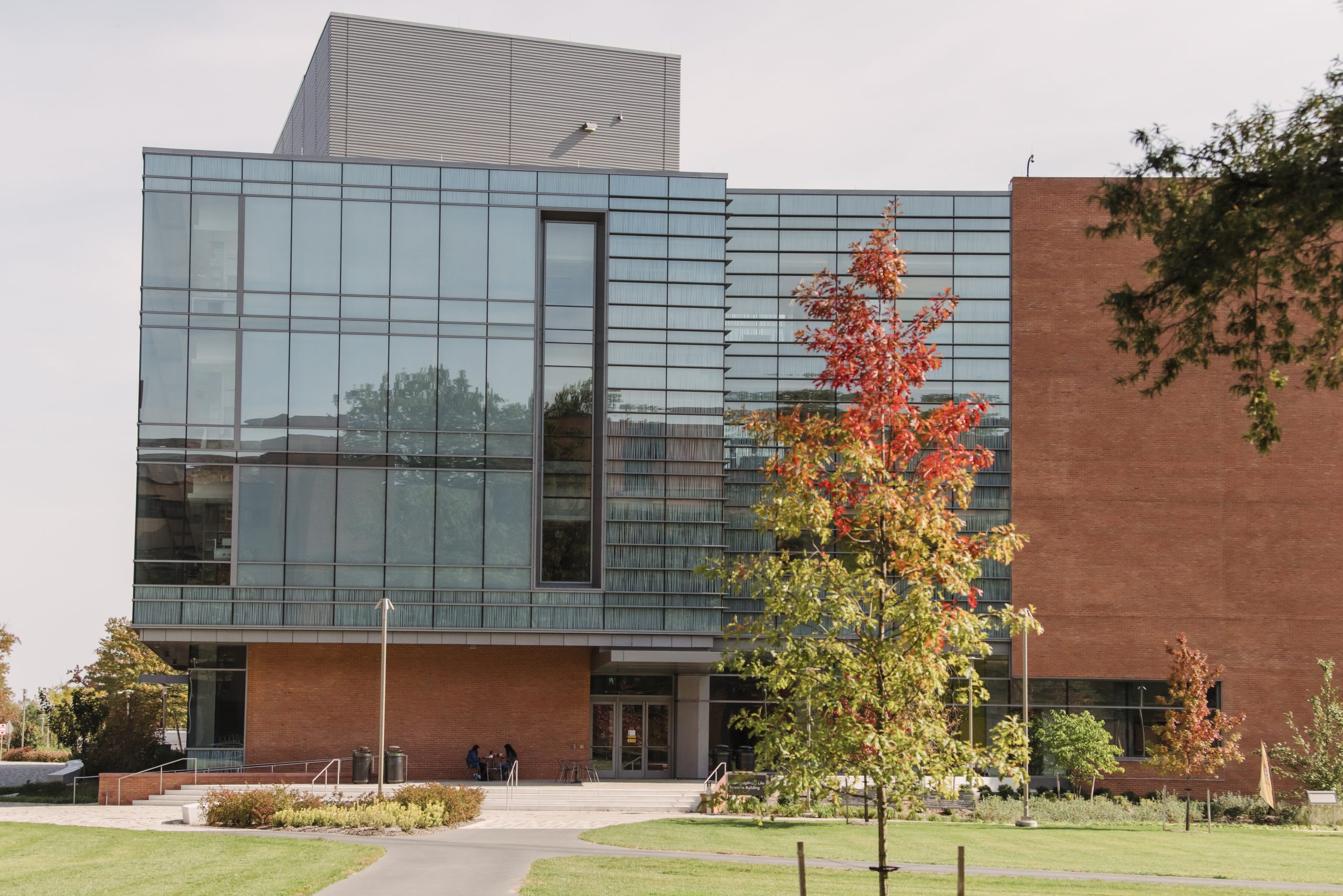Six student groups recently vied for the top prize in UMBC’s annual Idea Competition, presenting to a panel of alumni judges their innovative solutions to everyday challenges. The competition, hosted by UMBC’s Alex. Brown Center for Entrepreneurship, was held virtually for the first time due to the COVID-19 pandemic. This year’s winning ideas focused on physical and mental health and the environment.
“Even though we had to miss the excitement of an in-person competition this year, it was very important to hold the event to give our students the opportunity to showcase their creative ideas and get feedback from experienced entrepreneurs,” said Vivian Armor ‘73, American studies, director of the Alex. Brown Center for Entrepreneurship.

Connection between physical and mental health
Yvann Tientcheu ‘21, information systems, and his collaborators earned first place in the competition for Strive, an app designed to support physical and mental health and wellbeing. The concept for Strive (currently a web-based demo) is that users can enter a simple sentence about their mood. The sentence is run through IBM Watson, a highly robust artificial intelligence system, to assess the person’s current mood. The app then provides the person with a specific workout that aligns with their mood.
Tientcheu explains that the app seeks to move past one-size-fits-all solutions by flexibly responding to how a user feels at a given moment. It will also allow users to connect with each other and build community, he notes, which can be important for sustaining health practices.
Beyond individual users, “Our target market is the medical community,” Tientcheu said in his presentation. “We’re hoping to provide [healthcare providers] with a constant, continuously updated steam of data that shows the connection between [patients’] mental and physical health.”
“Strive was initially planned as a tool to share mental health resources to deal with the mental exhaustion caused by COVID-19,” explains Tientcheu. “As the idea evolved, we realized that there would come a time where the pandemic would be over, that most adults don’t get the recommended amount of exercise, and that physical fitness seems to be linked to mental health. We decided to refocus on offering a brand new service that catered to both physical and mental health.”
Tientcheu describes the project as “something we felt had more long-term viability, and a usefulness that would never be outlived if the idea were properly executed.”
Growth companion
The second place winners, and recipients of the Best Presentation award, were Andrew Park ‘21, interdisciplinary studies, and Tristan King ‘21, interdisciplinary studies, for their idea Sproutful. Park and King are passionate about digital technology, and were inspired to create a unique and whimsical way for people to find healthy coping mechanisms and to prioritize mental health during the COVID-19 pandemic.
The Sproutful System includes a plant container outfitted with sensors that transmit to a phone app, which also features daily guided meditations. The idea is that a person will care for themselves and their plant in a daily meditative practice that is both relaxing and rewarding.
The app guides a user through a meditation and, at the conclusion of the meditation, the app prompts the user to water their plant with the push of a button. Sensors on the plant container monitor water levels in the soil and a water reservoir, and prevent the plant from being overwatered.
“Sproutful is your very own personal meditation and growth companion,” Park explained to the judges. The app “creates a powerful connection between nature and your living space,” said King. “As you grow in your meditation habits, your new plant grows alongside you.”
Looking out for the planet
Robin Paranilam ‘22, computer engineering, presented Terra, which earned third place in the competition. Many people want to protect the environment but don’t know the positive steps they can take, he said. “Terra is an app that acts as a one-stop-shop for eco-friendly living,” he explained. It offers personalized actions that each user can take to protect the world around them.
The Terra app focuses on four aspects of protecting the environment: alternative energy, sustainable living, reducing carbon footprints, and eco-friendly eating. Each category provides tips and resources that people can use to be mindful of how their actions impact the planet. The Terra app will not only tailor resources for individual users, but also will encourage them to connect with other nearby users to make a collective impact.
“The fact that the winning ideas focused on well-being, community, relationships, and the environment shows how much our students care about others and the world around them,” says Armor, “and how much they want to make a difference.”
The winning group received $750 to continue to develop their idea, and the second and third place groups received $500 and $250, respectively. The team that received the Best Presentation award received $250. Each spring, the Alex. Brown Center for Entrepreneurship hosts the Cangialosi Business Innovation Competition.
Banner image: UMBC’s campus in the fall. Photo by Marlayna Demond ‘11 for UMBC.
Tags: AlexBrownCenter, COEIT, CSEE, INDS, IS

